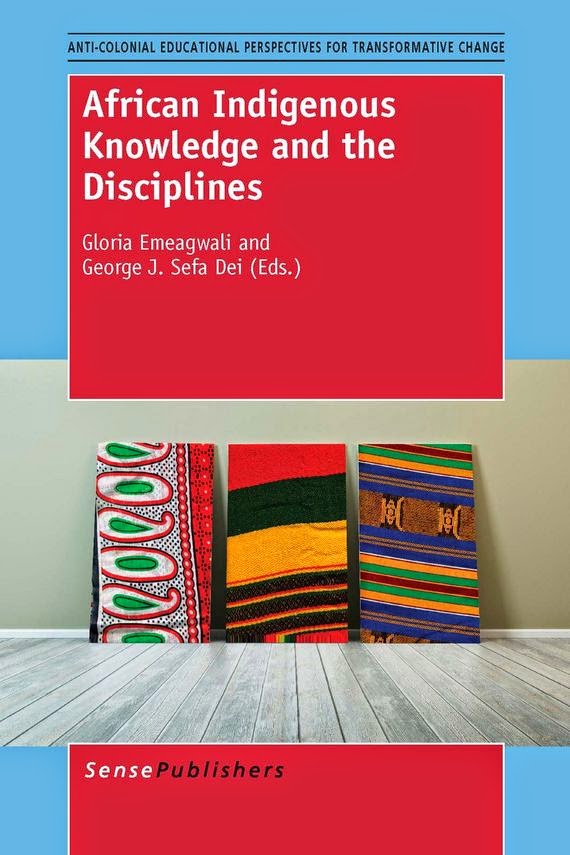“We have written this book to contest knowledge, and particularly hegemonic knowledges that tend to masquerade as universal knowledges. Our learning objective has been to situate African Indigenous Knowledges in critical discussions about knowledge production in the academy. We examine the processes of interrogating, validating, and disseminating Indigenous African Knowledge Systems internally and globally and the various ways of knowing. This is no easy task. While we recognize the relevance of local and Indigenous African knowledges, we are also under no illusion as to the discriminatory tendencies discernible in the academy. Not all knowledges are given the same amount of capital in the academy. While some bodies of knowledge have been privileged and made dominant, other forms of knowledge are still being contested and are in the process of being delegitimized. Consequently, for us, this intellectual foray into African Indigenous Knowledge System has been a way to both politically and intellectually contest the denial of African ways of knowing, in science and scholarship. This book is thus a call for a paradigmatic shift in how we come to learn, teach, and study Africa in terms of content, subject matter, and overall curriculum. It is about an epistemic shift in Indigenous Knowledge Studies on Africa and the African Diaspora. African Indigenous Knowledge does not sit well with some scholars who feel threatened because of its critique of knowledge production in the academy and its challenge to the claims and assumptions of the exclusivity of western science. The anti-Indigenousness of the Western academy can be traced to the denial of African humanity dating back to the era of conquest, human trafficking, settler colonialism, and occupation. It is also linked to an obstinate reluctance to decolonize the academy. Because of the Eurocentric dismissal of Africa-centered knowledge systems, African scholars have been confronted with the task of arguing for their acceptability in the academy, on terms established by hegemonic forces. We must challenge this. African knowledge systems must be evaluated and taught on the principles established in local communities which serve to regulate knowledge production, validation, use and dissemination” – https://www.sensepublishers.com/media/2131-african-indigenous-knowledge-and-the-disciples.pdf
